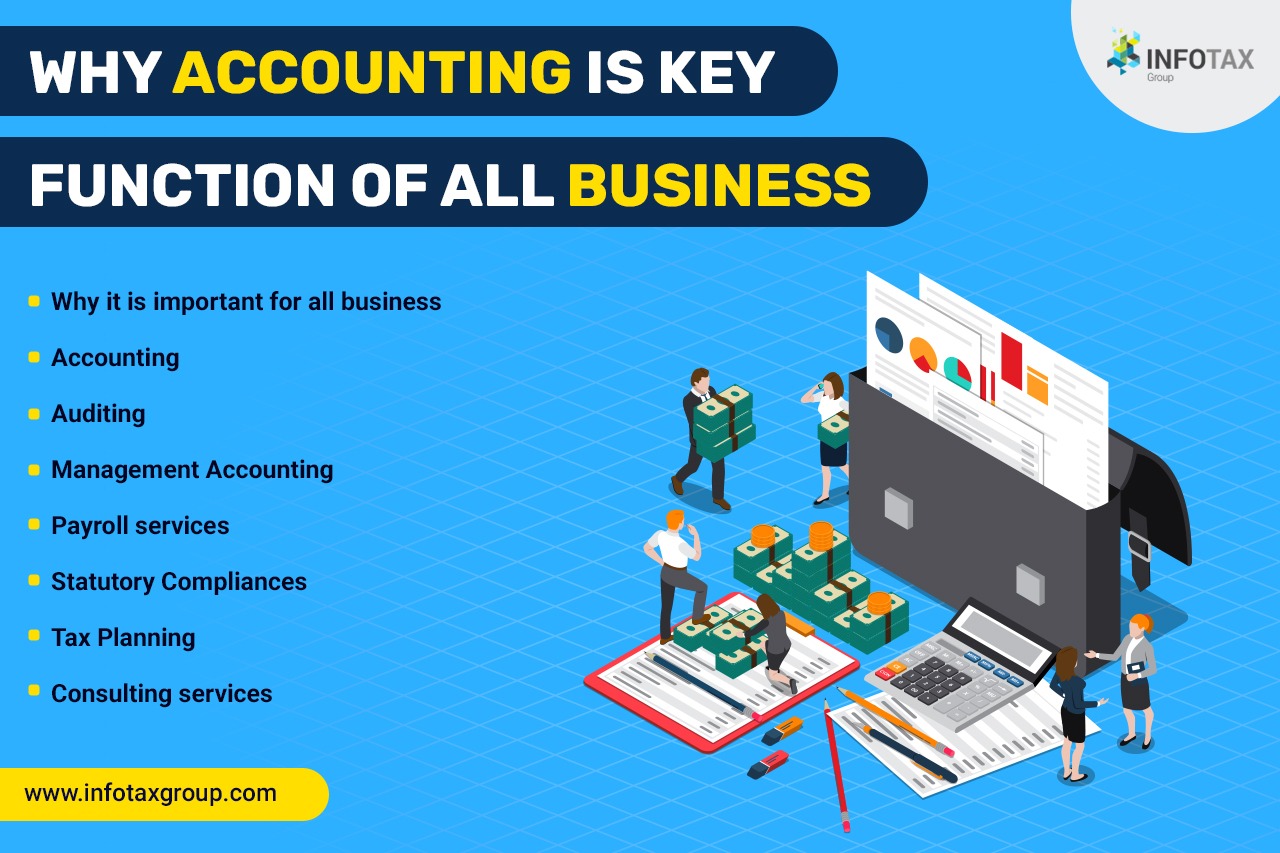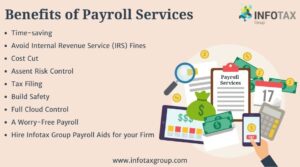Accounting is a significant business operation. It is referred to as the systematic and meticulous documentation of financial transactions for all types of businesses including startups, government, forensic, SMEs, and large enterprises.
Why it is important for all business
Accounting is essential for running all the business operations smoothly as it helps in keeping a track of complete business transactions i.e. income & expenditure to ensure statutory compliance which helps in providing investors and management with quantitative financial information for making the right business decisions and plan their strategies accordingly. It is vital to keep your financial records apparent and updated to keep your business afloat. Let’s understand why Accounting is a key function of all business-
- Ensures business compliance
A regulated accounting system ensures statutory compliance of businesses. Since different states have different rules and regulations, a proper accounting system will ensure holistic & healthy management of business finances. It will ensure that all accounting related liabilities such as GST, tax, income, profit, loss, pension funds, etc. are addressed accurately.
- Evaluation of business performance
The financial records of your business accumulated from various business operations reflect the financial health and position of a company. Regulated and clear records help in keeping the track of business expenses, margins, profit & loss, investments, and possible debt. Besides, it also compared the accounting records of current & previous years to allocate the budget accordingly.
- Determining liquidity
A proper accounting system helps in determining the liquidity condition of a business that refers to cash and other resources available for disposal to cater important financial commitments. It streamlines cash management and reduces the bankruptcy risk by detecting financial bottlenecks.
- Managing legal requirements
Legally it is mandatory to maintain accurate financial records of business transactions to share timely reports with various stakeholders including tax authorities, shareholders, directors, regulators, and investors. Besides, they are also required for filing taxes.
Accounting
There are various types of accounting processes.
Financial Accounting
The process of recording, summation, and reporting about a company’s business transactions through financial statements is known as Financial Accounting. There are four basic types of financial statements that include a balance sheet, cash flow statement, income statement, and statement of retained earnings.
- The income statement- A company’s income statement is a company’s net income over a period of time. It is commonly referred as the “Profit & Loss” statement that is a company’s total revenue minus total expenses.
- Balance sheet- A balance sheet is the company’s record of assets and liabilities including with its shareholder’s equity.
- Cash flow statement- Detail of a company’s income and debts over a certain period of time is referred to as the cash flow statement. It doesn’t include amortization and depreciation cost.
Management Accounting
Also referred as cost accounting, it guides managers of a company to make decisions. It is the process of identifying, evaluating, analyzing, and communicating the relevant information to managers for achieving business goals.
Auditing
There are various types of accounting processes.
Cost Auditing
Smith and Day defined the term Cost Audit in their book “Advanced Cost Accountancy” “as the detailed checking of the costing system, technique, and accounts to verify their correctness and to ensure adherence to the objective of cost accountancy”. It includes verifying the accuracy of cost accounts as well as keeping a check whether the cost accounting plan is being adhered to or not. Cost audit is the audit of efficiency of meticulous details related to expenditure.
Payroll services
Payroll outsourcing activities generally include all the payroll-activities of the employees and the related functions associated with the department. These activities include maintaining employee records, calculating their salaries, taxes, deductions, bonuses, generating payroll reports, uploading tax-related documents, and distributing payroll in compliance with the government taxation laws. Managing all the activities helps to pay salaries to employees at the scheduled time. Besides, it supports the businesses to run the payroll concept smoothly and capitalize on technology. The employees and employers can easily access all the processes on their mobile within a few clicks. Additionally, customized reports can be generated for all stakeholders.
Statutory Compliances
It is a set of legal frameworks adhered by organizations to manage their employees. Every country and state has a different set of labor laws and every company needs to comply with them without any failure. Non-compliance with these regulations leads to a lot of legal troubles, penalties, and fines by the government. Hence companies to be regularly updated about the labor laws to avoid any kind of legal trouble.
Virtual Accounting
Virtual accounting services are best for companies unwilling to hire full-time accounting professionals and instead can manage their accounting needs by outsourcing them to a qualified agency. This helps businesses to cut down expenses while managing their account books through experts. It is particularly beneficial for startups that lack the budget for hiring full-time employees.
Professional Accounting
Professional accounting is the field of accounting managed by the statutory professional body of accountants which is handled by the accounting professionals of that domain. Some of the professional accounting fields include Cost Accountancy, Chartered Accountancy, Management Accountancy, and Company Secretaryship. One of the main objectives of the statutory professional body is to organize courses and examinations for aspirants seeking professional education in any of the above-mentioned fields of study. The structure of courses, frequency of examinations, and qualification norms are decided and managed by the body.
Tax Planning
The process of analyzing a financial plan from a tax perspective is known as Tax planning. It is required for maintaining tax efficiency ensuring all the aspects of a financial plan can work offering maximum tax-efficiency. It includes various components such as income size, sources, type of expenditures, and the timing of purchase. Additionally, various investments, deductions, and retirement plans should also be considered while filing tax return for best results.
Consulting services The consultancy firms provide expert advice on various domains such as finance, accounts, payroll, tax planning, management, engineering, etc. and are specialized in providing services to diverse industries. It usually comprises a team of experts with hands-on experience and good knowledge in their domains. For example, Infotax is a leading online finance and tax consultancy providing complete guidance and end-to-end management of all the legal paperwork and compliances related to Accountancy, Tax planning, HR & Payroll, Company formation including many others.







